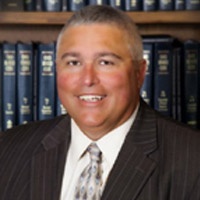Akron Criminal Lawyer, Ohio
Sponsored Law Firm
-
 x
x

Click For More Info:
-
Washington Law, LLC
P.O. Box 944 Cuyahoga Falls, OH 44223» view mapCriminal Defense Law Experience Makes the Difference
We take the time to research your situation completely and bring about the most effective opportunities ensuring you get the successful outcome you deserve.
800-851-6480
Louis John Gigliotti
✓ VERIFIEDLouis J. Gigliotti Jr. believes in fighting vigorously for his clients
Michael Boske
✓ VERIFIEDHaving tried hundreds of cases, Michael Boske is one of Canton's most experienced trial lawyers, with extensive knowledge of the local courts, judges,... (more)
Michael B Washington
✓ VERIFIEDMichael served 13 years as a Prosecuting Attorney in South Eastern Ohio. In private practice, he has broadened his work to all areas of criminal law ... (more)
Andrew M. Parker
The experienced attorneys at The Law Offices of Andrew M. Parker offer trusted legal guidance in divorce, family law, estate planning, and criminal d... (more)
Mark Franklin Graziani
✓ VERIFIEDMark Graziani is a practicing lawyer in the state of Ohio. He received his J.D. from University of Akron School of Law in 2014 and is licensed in Ohio... (more)
Paul Michael Kelley
✓ VERIFIEDWe’re committed to providing you with top notch legal support. We approach every client with a focus on integrity, advocacy, and understanding. We f... (more)
Dianne R. Newman
FREE CONSULTATION
CONTACTFREE CONSULTATION
CONTACTFREE CONSULTATION
CONTACT Michael Washington Cuyahoga Falls, OH
Michael Washington Cuyahoga Falls, OH Practice AreasExpertise
Practice AreasExpertise






